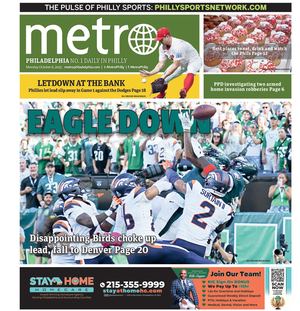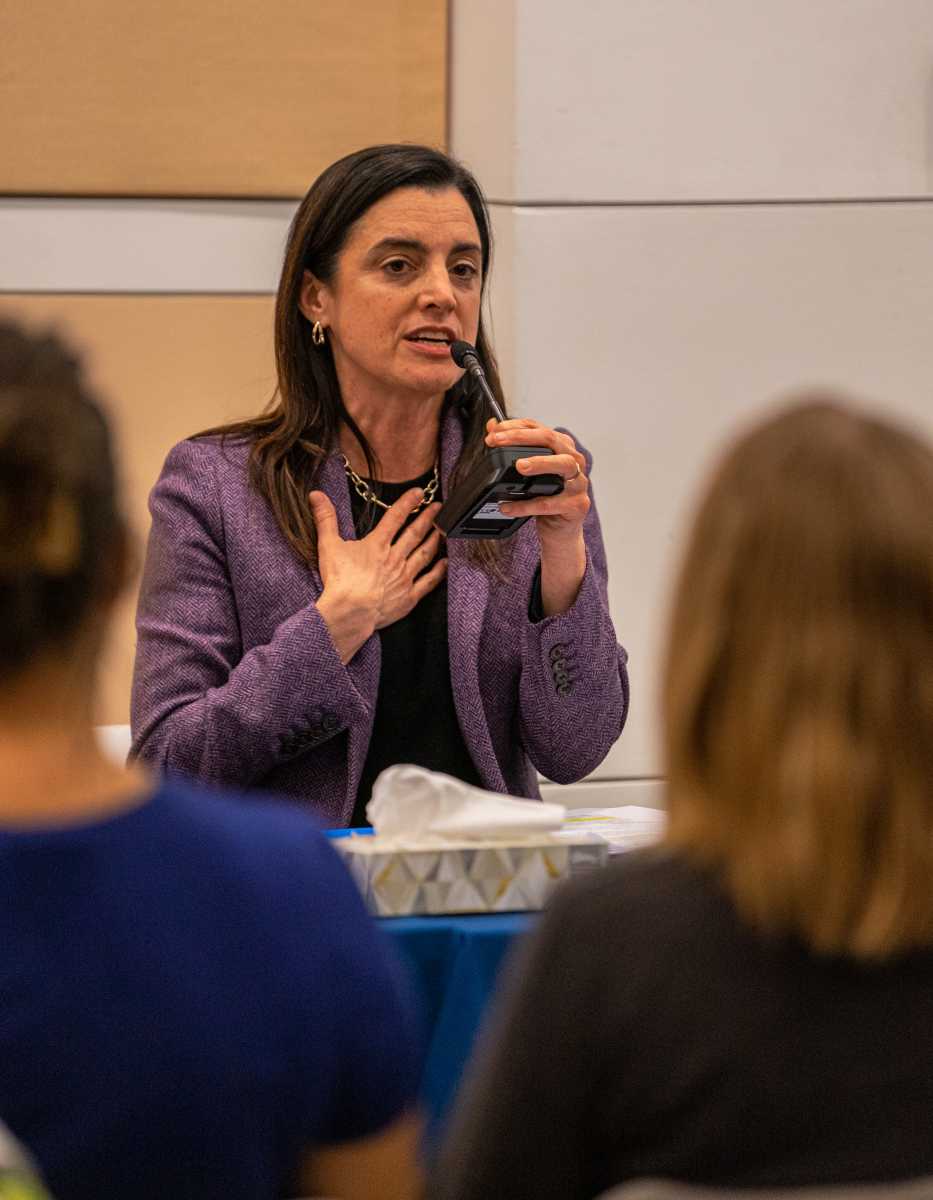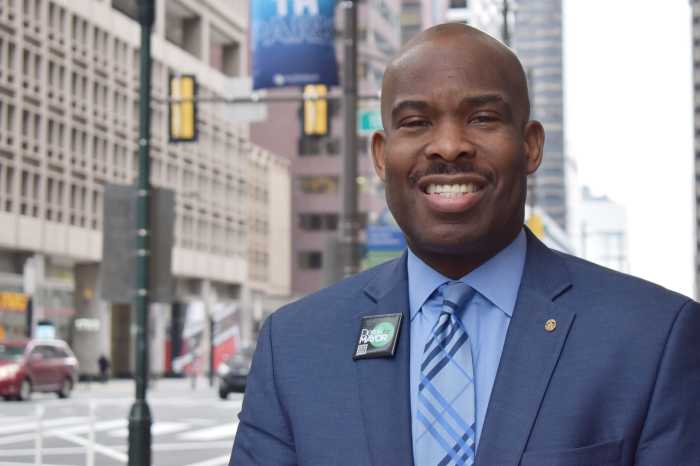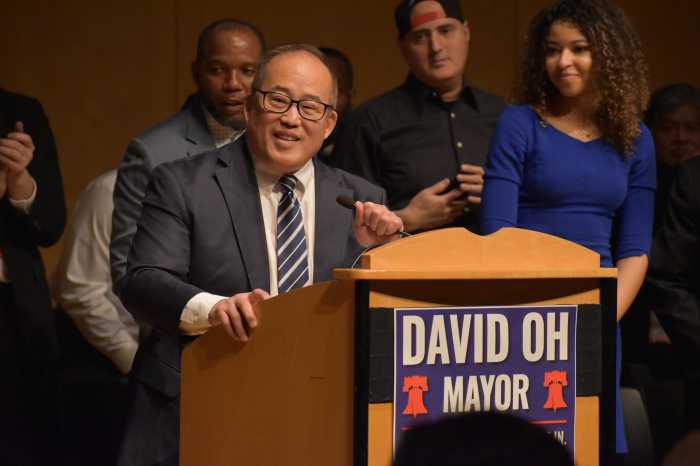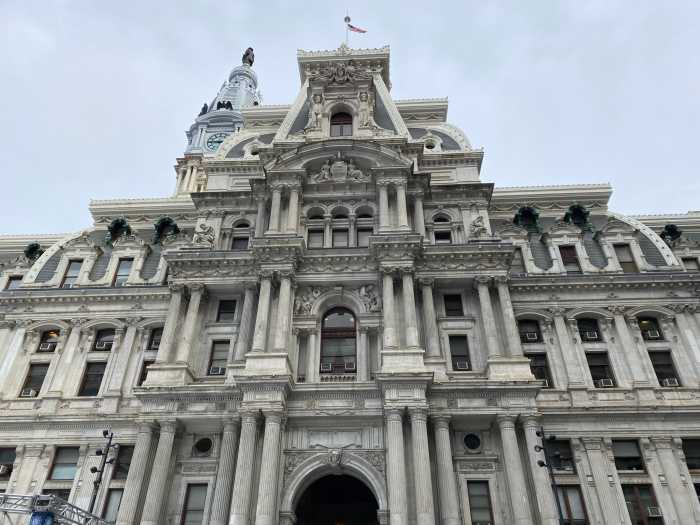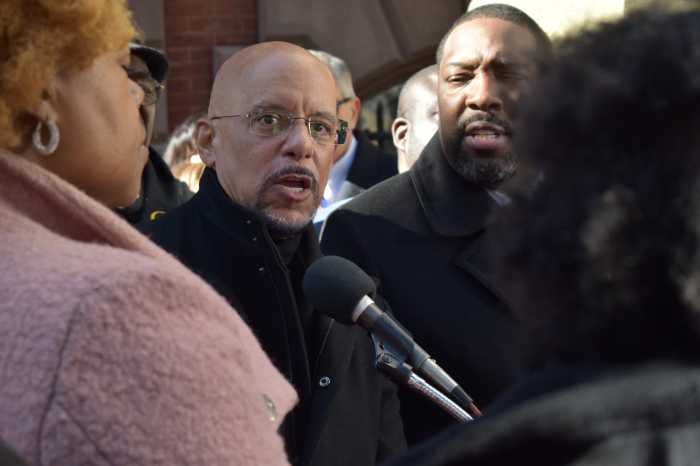Rebecca Rhynhart spent nearly nine years at City Hall – serving as a top budget deputy under two different mayors – before deciding that Philadelphia’s political culture needed to be disrupted.
She mounted a successful challenge, in the 2017 Democratic primary, to incumbent City Controller Alan Butkovitz, a party-backed candidate who had held the job for 12 years.
“I saw too much of what was holding the government back and the city back was actually the entrenched nature of the politics, and I had to change that in order to make it work,” Rhynhart told Metro during a March interview at her campaign office.
Rhynhart’s pitch to voters is that she is trying to do the same in this year’s Democratic mayoral primary, where she is among a group of contenders that includes three former City Council members.
As controller, she often clashed with the administration of Mayor Jim Kenney, her former boss, over the findings of audits and investigations commissioned by her office.
“I know how the departments work together and don’t work together,” Rhynhart said. “I also know the city’s budget inside and out. I’m the most qualified person with my executive experience in the city.”
Results from the first independent poll of the race, released Friday, showed Rhynhart in the lead, at 18%; however, considering the survey’s 3.8% margin-of-error, it found she was in a statistical tie with Cherelle Parker, Helen Gym, Allan Domb and Jeff Brown. A fifth of participants reported being undecided.
Rhynhart’s campaign advertisements show her alongside former mayors Michael Nutter and John Street – both of whom have endorsed her. And, last week, she received the support of former mayor and Pennsylvania governor Ed Rendell.
“When it really comes down to it, she stands alone,” said Salaam Muhsin, an imam, real estate developer, Rhynhart supporter and ex-gang member involved in anti-violence efforts. “It’s just a matter of her being able to sell herself to the public, and she’s not the best at doing that.”
Mushin told Metro that Rhynhart understands that poverty – along with racial discrimination in housing policies – is at the root of gun violence.
If she is elected, Rhynhart intends to declare a violence emergency, opening an operations center to coordinate a heightened response in the 14 zip codes experiencing the highest levels of shootings and homicides.
“There is a sense of lawlessness on our streets,” she said. “The answer isn’t going backwards to a straight law-and-order perspective that was racist and unconstitutional. That’s not the answer, but the answer is not the status quo. We can’t have this degree of chaos.”
Rhynhart believes she can find a balance between supporting police and holding officers accountable.
Her public safety plan calls for modifying an executive order, signed by Kenney in 2016, that decriminalized disorderly conduct, public drunkenness, failure to disperse and obstructing a highway. Since then, tickets have been issued for the offenses, instead of arrests.
In a Rhynhart administration, officers would be permitted to apprehend someone for disorderly conduct in some situations to de-escalate potentially violent situations. She said diversion programs would be offered to people who do not need to be incarcerated.
To get more police on the street, Rhynhart plans to pursue an “aggressive and rigorous process” of, where possible, placing civilians in roles currently filled by officers.
She would prioritize assigning new police recruits to Kensington, and nonviolent drug dealers in the neighborhood would be offered an opportunity to leave criminal activity or face a possible arrest, according to Rhynhart’s plan.
“We’re not the first city in the world with an open air drug market but it’s completely unacceptable and, as mayor, I will end the open air drug market,” she said.
Asbestos issues have forced several Philadelphia schools to temporarily shut down this academic year, and Rhynhart vowed to push state lawmakers to send more money to the school district to fix aging facilities.
She would also use city resources to boost staffing if a school is without a nurse or a social worker.
Rhynhart supports keeping the Philadelphia Beverage Tax, though she said her administration would implement increased transparency to show where the money is going.
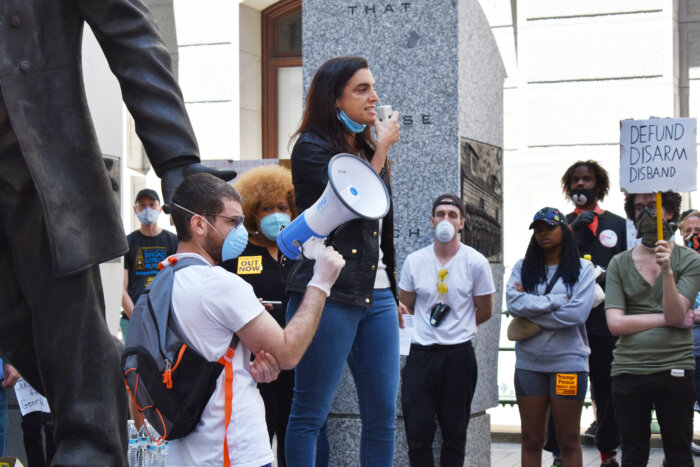
‘Hands-on’
After growing up in Abington, Rhynhart left the Philadelphia area for college – first to Middlebury College in Vermont and then to graduate school at Columbia University.
She moved on to Wall Street, working at Fitch Ratings and Bear Stearns. In both roles, she handled financial issues related to municipal governments.
“What made me want to leave was just seeing how local governments were often taken advantage of,” she recalled. “They just didn’t make the best decisions for themselves financially because they didn’t have the financial knowledge to understand the risks of the trades.”
Rhynhart left Bear Stearns in 2008, just before the firm famously collapsed in the prelude to the recession. But, in becoming Nutter’s city treasurer, she didn’t escape the effects of the financial crisis.
“The city actually had a cash shortage in 2009 going into 2010,” Rhynhart said. “The city didn’t have enough money to pay its vendors. As city treasurer, that’s what a lot of my energy was put into.”
Recently, in mayoral debates and forums, Rhynhart has been criticized for defending some of Nutter’s more unpopular policies, including budget cuts that forced temporary fire station closures and a proposal to shutter library branches, during public hearings at the time.
Rhynhart, in response, has said that her role was to back up Nutter, and she told Metro part of her decision to leave Kenney’s office to run for controller was so she could have an independent voice.
“I wanted to be able to speak up,” she said. “When you work for a mayor, if you disagree and you don’t win the argument, you have to stand down.”
As controller, Rhynhart released investigations that found waste and mismanagement in city government, and she felt the Kenney administration got “very defensive right away.” She hopes for a more harmonious relationship with the controller if she is elected mayor.
Rhynhart was very “hands-on,” directing audits and reviewing reports page-by-page before they were published, said Salena Jones, who served as the controller’s general counsel.
“She was not just a figurehead,” said Jones, who is now a deputy district attorney in Delaware County. “She really listened and wanted to do what the people wanted or felt was needed.”
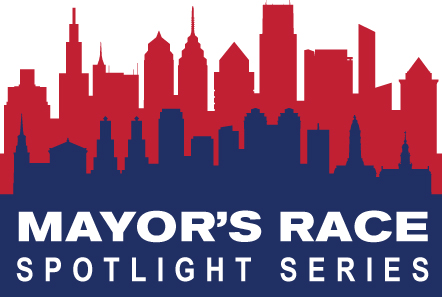
Ahead of Philadelphia’s Mayor’s Race, Metro will spotlight every candidate in the Democratic primary election, which will take place on Tuesday, May 16. Follow our Mayor’s Race Spotlight Series for an in-depth look at the candidates.
